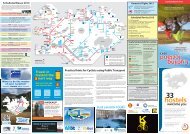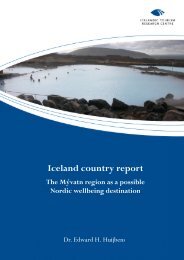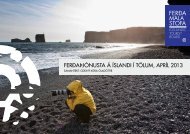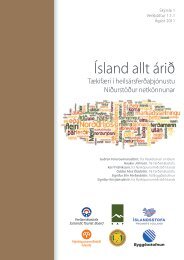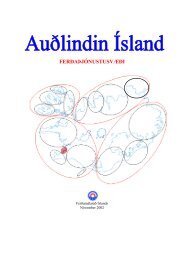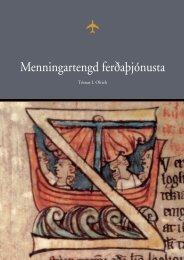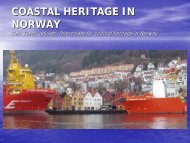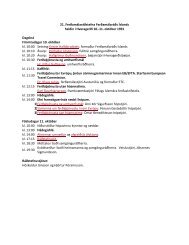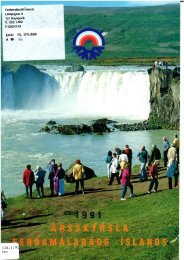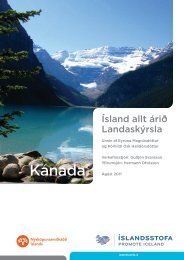Untitled
Untitled
Untitled
You also want an ePaper? Increase the reach of your titles
YUMPU automatically turns print PDFs into web optimized ePapers that Google loves.
usiness and market to potential customers. Also policy-making involves<br />
hypothetical and speculative reasoning. For example, making plans for<br />
tourism development is theoretical in the sense that it is about something<br />
imaginary. The future does not exist here and now, it can only appear here<br />
and now as a pure theoretical object.<br />
That we in this chapter choose to address and put emphasis on the<br />
importance of tourism theory is not be read as advocating theory for its<br />
own sake. We do, however, believe that there are some substantial reasons<br />
for paying extra careful attention to theory in tourism studies. We agree in<br />
principle with Shaw and Williams that “tourism research is still often<br />
descriptive, a-theoretical, and chaotically conceptualized in being<br />
abstracted from broader social relationships” (Shaw and Williams 2004, p.<br />
1). Although exceptions can readily be found, their argument indicates that<br />
one future challenge for tourism theory is to further enhance and develop<br />
accounts that situate tourism and tourists in a broader framework informed<br />
by contemporary social and cultural theorizing.<br />
What we now need to address first is what theory is, and how it is<br />
related to tourism studies. With the student audience in mind, this<br />
necessitates a brief introductory tour into the relationship between<br />
scientific disciplines and theory more generally.<br />
Tourism studies: a field or a discipline?<br />
One of the distinguishing features of a scientific discipline, for example<br />
biology or sociology, is that it has a common theoretical domain consisting<br />
of understandings and explanations of the phenomenon being studied. This<br />
does not mean that such a domain has to exist in the form of a single<br />
unified discipline theory that all its scholars and researchers subscribe to.<br />
The point is instead that a discipline theory offers a common disciplinary<br />
ground on which theoretical conversations and critical debates can take<br />
place. Even if there were to be substantial disagreements and disputes<br />
between scholars and researchers, they are nevertheless able to position<br />
and locate them on a map of their own discipline territory. So, does<br />
tourism studies have a discipline of its own?<br />
The question is not altogether easy to answer. Although tourism<br />
studies clearly do exist in terms of formal academic institutional structures,<br />
with departments offering university degrees and conducting research on<br />
tourism and tourists, it is less certain how and to what extent it is a<br />
discipline held together by a common theoretical domain. For a long time<br />
32



